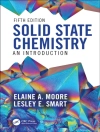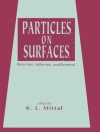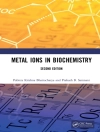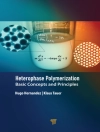Today, among the various chiral discrimination methods, chromatography and capillary electrophoresis techniques have become powerful tools in environmental analysis. Therefore, there is a need to describe the art of the determination of the chiral pollutants in the environmental matrices. This book provides the complete information on the types of the chiral pollutants, their toxicities and methods of determination by chromatography and capillary electrophoresis.
Sobre o autor
Dr Imran Ali obtained his M.Sc. (1986) and Ph.D. (1990)
degrees from the Indian Institute of Technology, Roorkee, India. At
present, he is working as a Scientist in the National Institute of
Hydrology, Roorkee, India. His research areas of interest are the
chiral analysis of biologically and environmentally active chiral
compounds, and metal ion speciation using chromatographic and
capillary electrophoresis techniques. He also has expertise in
water quality and wastewater treatment methodologies. Dr Ali is the
author or co-author of more than 70 journal articles, book and
encyclopedia chapters, and of a book entitled Chiral Separations
by Liquid Chromatography and Related Technologies, published by
Marcel Dekker, Inc., in New York. Dr Ali has been awarded a
‘Khosla Research Award – 1987’ by The Indian
Institute of Technology, Roorkee, India, for work on the chiral
resolution of amino acids. He is a life member of the Indian
Science Congress Association.
Professor Hassan Y. Aboul-Enein is a Principal Scientist
and Head of the Pharmaceutical Analysis and Drug Development
Laboratory at King Faisal Specialist Hospital and Research Centre,
Riyadh, Saudi Arabia. He is the author or co-author of over 500
refereed journal articles, 30 book chapters and 270 conference
presentations. He is the author of six books, including Chiral
Separation by Liquid Chromatography and Related Technologies
(Marcel Dekker, Inc.) and The Impact of Stereochemistry on Drug
Development and Use (John Wiley&Sons, Ltd). He is amember
of the Editorial Board of several journals, including Talanta,
Chirality, Biomedical Chromatography, Analytical Letters,
Talanta and Chromatographia.
Professor Aboul-Enein is a member of the World Health Organization
(WHO) advisory panel on international pharmacopeia and
pharmaceutical preparations, and he is a Fellow of the Royal
Society of Chemistry (UK). He received his B.Sc. degree (1964) in
pharmacy and pharmaceutical chemistry from Cairo University, Cairo,
Egypt, and his M.Sc. (1969) and Ph.D. (1971) degrees in
pharmaceutical and medicinal chemistry from the University of
Mississippi, Oxford, USA. Professor Aboul-Enein’s current
research interests are in the field of pharmaceutical and
biomedical analysis and drug development, with a special emphasis
on chiral chromatography, ion-selective electrodes and other
separation techniques.












